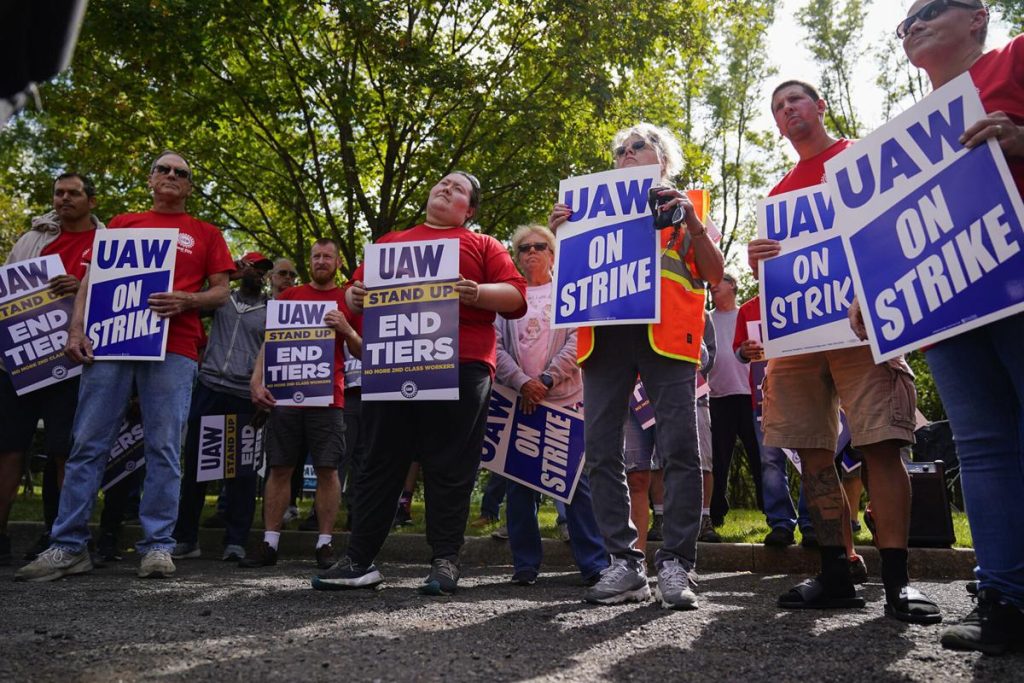Stellantis is taking legal action against the United Auto Workers (UAW), intensifying a lengthy conflict between the trans-Atlantic automaker and the American labor union.
In an internal communication sent to employees on Friday, which was verified as genuine, the company announced that it is suing both the UAW and a local chapter in California.
The lawsuit pertains to a strike authorization request vote at Stellantis’ Los Angeles Parts Distribution Center.
“This lawsuit aims to hold both the International and the local union accountable for the revenue loss and other damages resulting from lost production due to an unlawful strike,” Tobin Williams, Stellantis senior vice president of North America human resources, stated in the message.
A majority of UAW members at the Los Angeles Parts Distribution Center voted to request strike authorization from the International Executive Board in the event that Stellantis and the union fail to reach an agreement, the union said on Friday morning.
The legal complaint, filed in the U.S. District Court in the Central District of California, seeks to “prevent and/or remedy a breach of contract” by the UAW.
The lawsuit contends that if the union goes on strike, Stellantis should be awarded monetary damages for the resulting breach of contract.
UAW President Shawn Fain addressed the lawsuit in a letter to union leaders at Stellantis on Friday, describing the company’s legal actions as “desperate moves from an executive who has lost control.”
“Our legal team is confident in our right to strike. These legal threats from the company are merely intimidation tactics to prevent us from standing our ground,” Fain said.

The ongoing conflict revolves around the union’s accusations that Stellantis has failed to fulfill contractual commitments that were established in a deal late last year.
This comes after Stellantis implemented production cuts, worker layoffs, and delayed potential investments that were outlined in the 2023 agreement.
While Fain has consistently said the union will strike if necessary, Stellantis argues that such a strike would be illegal under the current contract.
The automaker claims that the contract includes provisions allowing flexibility to adjust plans based on market conditions, plant performance, and other factors.
Stellantis reiterated this position in its lawsuit, citing “Letter 311,” which details the company’s anticipated investments and states that those plans are conditional, requiring company approval and subject to change based on various business factors.
The lawsuit was filed on the same day that Fain and UAW members held a rally against Stellantis in the Detroit suburbs.
“We’re here today for one reason: Stellantis CEO Carlos Tavares is out of control, and once again, it’s up to UAW members to save this company from itself,” Fain said during the rally.
“If we have to strike, it’s Stellantis’ decision, because they are failing to honor their commitments.”
The UAW and several local chapters have filed grievances against Stellantis over alleged breaches of contract and other related issues.
Stellantis has dismissed these grievances as a tactic to “justify mid-contract strikes that would otherwise violate the contract’s no-strike clause,” according to the lawsuit.

